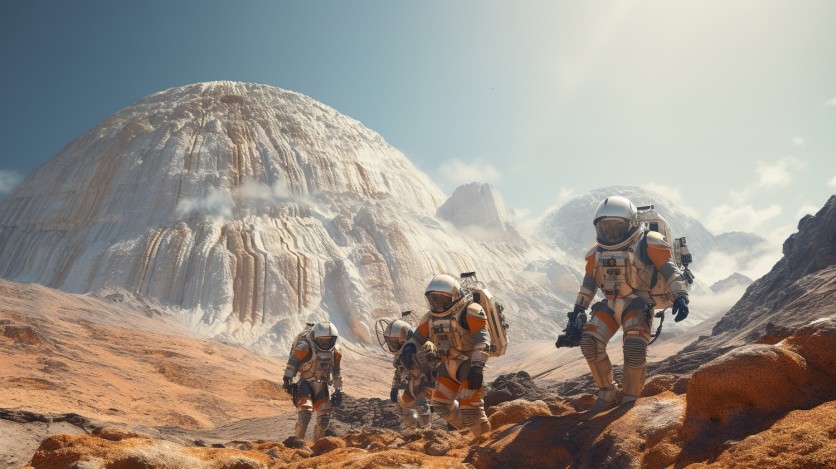NASA has introduced a new team of four volunteers who will embark on a simulated mission to Mars within a habitat at the agency's Johnson Space Center in Houston.
The crew members, Jason Lee, Stephanie Navarro, Shareef Al Romaithi, and Piyumi Wijesekara, are set to enter the Human Exploration Research Analog (HERA) on May 10.

A 45-day Stay in Mars
During their 45-day stay, they will immerse themselves in the environment of astronauts, conducting scientific research and operational tasks, including simulated walks on Mars' surface.
HERA serves as a platform for studying how individuals adapt to isolation, confinement, and remote conditions. Throughout their simulated journey to Mars, the crew will face increasing communication delays with the Mission Control Center, mimicking the conditions astronauts would experience on a real mission.
This crew marks the second group of volunteers to participate in a simulated Mars mission in HERA this year. Following their mission, two more crews are scheduled to undertake similar simulations, with the final mission concluding on Dec. 20.
A notable aspect of this mission is the participation of Shareef Al Romaithi, a pilot from the United Arab Emirates (UAE), representing a partnership between NASA and the UAE's Mohammed Bin Rashid Space Centre (MBRSC).
NASA's Human Research Program is also initiating 18 human health studies during the mission, evaluating physiological, behavioral, and psychological responses to conditions resembling those of a Mars journey. Seven of these studies are a result of collaborations with the MBRSC and the European Space Agency (ESA).
Meet the Crew
1. Jason Lee, an associate professor-in-residence at the University of Connecticut, specializes in thermal fluids, manufacturing, and sports engineering. With degrees from the University of California, Berkeley, and the University of Texas at Austin, his research focuses on manufacturing processes and heat shielding materials.
2. Stephanie Navarro, a space operations officer in the U.S. Air Force Reserve, has extensive experience in satellite communication programs and systems engineering. Born and raised in Miami to Ecuadorian parents, Navarro is passionate about her cultural heritage and enjoys activities such as flying and studying for her pilot's license.
3. Shareef Al Romaithi, a pilot with over 16 years of experience in the airline industry, holds multiple degrees in aerospace engineering and aviation management. As the world's youngest graduate with a doctorate degree in aviation, Al Romaithi brings expertise in aviation safety systems and human factors to the mission.
4. Piyumi Wijesekara, a postdoctoral research scientist at NASA Ames Research Center, specializes in developing tissue models to study the effects of spaceflight stressors on the human respiratory system. With degrees from the University of California, San Diego, and Carnegie Mellon University, her research focuses on stem cell and organ engineering.
Jose Baca, an assistant professor at Texas A&M University-Corpus Christi, and Brandon Kent, a medical director in the pharmaceutical industry, serve as alternate crew members.
Baca's research interests include designing modular systems and coordinating multi-robot teams, while Kent focuses on developing new therapies across cancer types.

ⓒ 2025 TECHTIMES.com All rights reserved. Do not reproduce without permission.




